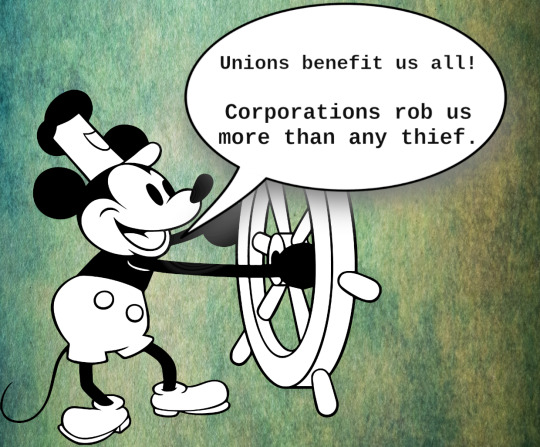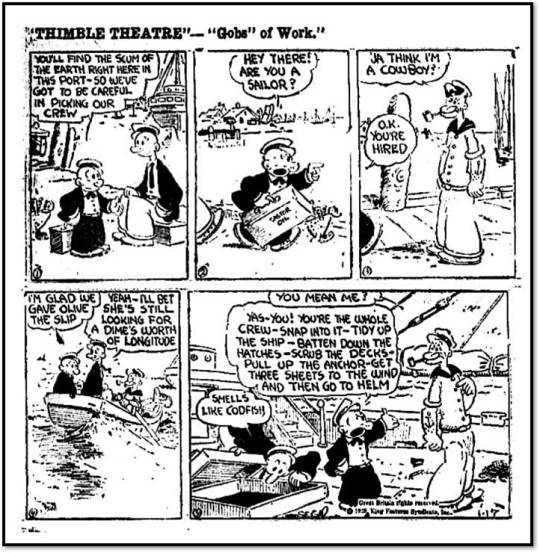#The Copyrights
Explore tagged Tumblr posts
Audio
Listen/purchase: The Company by The Copyrights
7 notes
·
View notes
Text
abandonware should be public domain. force companies to actively support and provide products if they don't wanna lose the rights to them
121K notes
·
View notes
Text
It looks like Mickey has something to say

60K notes
·
View notes
Text
The Copyrights - In There Somewhere (Official Lyric Video)
youtube
1 note
·
View note
Text

What is UP, my dudes?! It’s Friday again, meaning it’s time for another NEW RELEASE ROUND-UP! Which of these new releases is your personal favorite? Let me know in the reblogs, and suggest your own new releases for the week if they’re not listed! 💿
#AmericanFootball #TheArmed #TheCopyrights #JerryCantrell #PinheadGunpowder #RemoDrive
#sage haley#new releases#new release round-up#american football#the armed#the copyrights#jerry cantrell#alice in chains#pinhead gunpowder#remo drive#emo#hardcore punk#punk#pop punk#alternative#rock#alternative metal#indie rock
1 note
·
View note
Text
The Copyrights Released New Single
Photo by by Patrick Houdek Get ready to scream along to The Copyrights’ latest banger, “Buried Treasure.” This infectious song is the second single from their upcoming EP, New Ghosts, set to drop on October 18th. Dive into the lyrics with our lyric video on YouTube and pre-order the EP today! Plus, catch The Copyrights live at The Fest in Gainesville, FL and other tour stops this fall. Drummer…
0 notes
Text
youtube
1 note
·
View note
Text
I was meeting a client at a famous museum’s lounge for lunch (fancy, I know) and had an hour to kill afterwards so I joined the first random docent tour I could find. The woman who took us around was a great-grandmother from the Bronx “back when that was nothing to brag about” and she was doing a talk on alternative mediums within art.
What I thought that meant: telling us about unique sculpture materials and paint mixtures.
What that actually meant: an 84yo woman gingerly holding a beautifully beaded and embroidered dress (apparently from Ukraine and at least 200 years old) and, with tears in her eyes, showing how each individual thread was spun by hand and weaved into place on a cottage floor loom, with bright blue silk embroidery thread and hand-blown beads intricately piercing the work of other labor for days upon days, as the labor of a dozen talented people came together to make something so beautiful for a village girl’s wedding day.
What it also meant: in 1948, a young girl lived in a cramped tenement-like third floor apartment in Manhattan, with a father who had just joined them after not having been allowed to escape through Poland with his pregnant wife nine years earlier. She sits in her father’s lap and watches with wide, quiet eyes as her mother’s deft hands fly across fabric with bright blue silk thread (echoing hands from over a century years earlier). Thread that her mother had salvaged from white embroidery scraps at the tailor’s shop where she worked and spent the last few days carefully dying in the kitchen sink and drying on the roof.
The dress is in the traditional Hungarian fashion and is folded across her mother’s lap: her mother doesn’t had a pattern, but she doesn’t need one to make her daughter’s dress for the fifth grade dance. The dress would end up differing significantly from the pure white, petticoated first communion dresses worn by her daughter’s majority-Catholic classmates, but the young girl would love it all the more for its uniqueness and bright blue thread.
And now, that same young girl (and maybe also the villager from 19th century Ukraine) stands in front of us, trying not to clutch the old fabric too hard as her voice shakes with the emotion of all the love and humanity that is poured into the labor of art. The village girl and the girl in the Bronx were very different people: different centuries, different religions, different ages, and different continents. But the love in the stitches and beads on their dresses was the same. And she tells us that when we look at the labor of art, we don’t just see the work to create that piece - we see the labor of our own creations and the creations of others for us, and the value in something so seemingly frivolous.
But, maybe more importantly, she says that we only admire this piece in a museum because it happened to survive the love of the wearer and those who owned it afterwards, but there have been quite literally billions of small, quiet works of art in billions of small, quiet homes all over the world, for millennia. That your grandmother’s quilt is used as a picnic blanket just as Van Gogh’s works hung in his poor friends’ hallways. That your father’s hand-painted model plane sets are displayed in your parents’ livingroom as Grecian vases are displayed in museums. That your older sister’s engineering drawings in a steady, fine-lined hand are akin to Da Vinci’s scribbles of flying machines.
I don’t think there’s any dramatic conclusions to be drawn from these thoughts - they’ve been echoed by thousands of other people across the centuries. However, if you ever feel bad for spending all of your time sewing, knitting, drawing, building lego sets, or whatever else - especially if you feel like you have to somehow monetize or show off your work online to justify your labor - please know that there’s an 84yo museum docent in the Bronx who would cry simply at the thought of you spending so much effort to quietly create something that’s beautiful to you.
#shut up e#long post#Saturday thoughts#this has been in my drafts for a week haha#also this is the heart of why AI art feels so wrong#forget the discussion of copyright and theft etc - even if models were only trained on public domain they would still feel very wrong#because they’re not art. art is the labor of creation#even commercial art and art commissioned by the popes and kings of history: there is humanity in the labor of it#unrelated: I did not know living in the Bronx was now something to brag about. How the fuck do y’all New Yorkers afford this city???
28K notes
·
View notes
Text
“If buying isn’t owning, piracy isn’t stealing”

20 years ago, I got in a (friendly) public spat with Chris Anderson, who was then the editor in chief of Wired. I'd publicly noted my disappointment with glowing Wired reviews of DRM-encumbered digital devices, prompting Anderson to call me unrealistic for expecting the magazine to condemn gadgets for their DRM:
https://longtail.typepad.com/the_long_tail/2004/12/is_drm_evil.html
I replied in public, telling him that he'd misunderstood. This wasn't an issue of ideological purity – it was about good reviewing practice. Wired was telling readers to buy a product because it had features x, y and z, but at any time in the future, without warning, without recourse, the vendor could switch off any of those features:
https://memex.craphound.com/2004/12/29/cory-responds-to-wired-editor-on-drm/
I proposed that all Wired endorsements for DRM-encumbered products should come with this disclaimer:
WARNING: THIS DEVICE’S FEATURES ARE SUBJECT TO REVOCATION WITHOUT NOTICE, ACCORDING TO TERMS SET OUT IN SECRET NEGOTIATIONS. YOUR INVESTMENT IS CONTINGENT ON THE GOODWILL OF THE WORLD’S MOST PARANOID, TECHNOPHOBIC ENTERTAINMENT EXECS. THIS DEVICE AND DEVICES LIKE IT ARE TYPICALLY USED TO CHARGE YOU FOR THINGS YOU USED TO GET FOR FREE — BE SURE TO FACTOR IN THE PRICE OF BUYING ALL YOUR MEDIA OVER AND OVER AGAIN. AT NO TIME IN HISTORY HAS ANY ENTERTAINMENT COMPANY GOTTEN A SWEET DEAL LIKE THIS FROM THE ELECTRONICS PEOPLE, BUT THIS TIME THEY’RE GETTING A TOTAL WALK. HERE, PUT THIS IN YOUR MOUTH, IT’LL MUFFLE YOUR WHIMPERS.
Wired didn't take me up on this suggestion.
But I was right. The ability to change features, prices, and availability of things you've already paid for is a powerful temptation to corporations. Inkjet printers were always a sleazy business, but once these printers got directly connected to the internet, companies like HP started pushing out "security updates" that modified your printer to make it reject the third-party ink you'd paid for:
https://www.eff.org/deeplinks/2020/11/ink-stained-wretches-battle-soul-digital-freedom-taking-place-inside-your-printer
Now, this scam wouldn't work if you could just put things back the way they were before the "update," which is where the DRM comes in. A thicket of IP laws make reverse-engineering DRM-encumbered products into a felony. Combine always-on network access with indiscriminate criminalization of user modification, and the enshittification will follow, as surely as night follows day.
This is the root of all the right to repair shenanigans. Sure, companies withhold access to diagnostic codes and parts, but codes can be extracted and parts can be cloned. The real teeth in blocking repair comes from the law, not the tech. The company that makes McDonald's wildly unreliable McFlurry machines makes a fortune charging franchisees to fix these eternally broken appliances. When a third party threatened this racket by reverse-engineering the DRM that blocked independent repair, they got buried in legal threats:
https://pluralistic.net/2021/04/20/euthanize-rentier-enablers/#cold-war
Everybody loves this racket. In Poland, a team of security researchers at the OhMyHack conference just presented their teardown of the anti-repair features in NEWAG Impuls locomotives. NEWAG boobytrapped their trains to try and detect if they've been independently serviced, and to respond to any unauthorized repairs by bricking themselves:
https://mamot.fr/@[email protected]/111528162905209453
Poland is part of the EU, meaning that they are required to uphold the provisions of the 2001 EU Copyright Directive, including Article 6, which bans this kind of reverse-engineering. The researchers are planning to present their work again at the Chaos Communications Congress in Hamburg this month – Germany is also a party to the EUCD. The threat to researchers from presenting this work is real – but so is the threat to conferences that host them:
https://www.cnet.com/tech/services-and-software/researchers-face-legal-threats-over-sdmi-hack/
20 years ago, Chris Anderson told me that it was unrealistic to expect tech companies to refuse demands for DRM from the entertainment companies whose media they hoped to play. My argument – then and now – was that any tech company that sells you a gadget that can have its features revoked is defrauding you. You're paying for x, y and z – and if they are contractually required to remove x and y on demand, they are selling you something that you can't rely on, without making that clear to you.
But it's worse than that. When a tech company designs a device for remote, irreversible, nonconsensual downgrades, they invite both external and internal parties to demand those downgrades. Like Pavel Chekov says, a phaser on the bridge in Act I is going to go off by Act III. Selling a product that can be remotely, irreversibly, nonconsensually downgraded inevitably results in the worst person at the product-planning meeting proposing to do so. The fact that there are no penalties for doing so makes it impossible for the better people in that meeting to win the ensuing argument, leading to the moral injury of seeing a product you care about reduced to a pile of shit:
https://pluralistic.net/2023/11/25/moral-injury/#enshittification
But even if everyone at that table is a swell egg who wouldn't dream of enshittifying the product, the existence of a remote, irreversible, nonconsensual downgrade feature makes the product vulnerable to external actors who will demand that it be used. Back in 2022, Adobe informed its customers that it had lost its deal to include Pantone colors in Photoshop, Illustrator and other "software as a service" packages. As a result, users would now have to start paying a monthly fee to see their own, completed images. Fail to pay the fee and all the Pantone-coded pixels in your artwork would just show up as black:
https://pluralistic.net/2022/10/28/fade-to-black/#trust-the-process
Adobe blamed this on Pantone, and there was lots of speculation about what had happened. Had Pantone jacked up its price to Adobe, so Adobe passed the price on to its users in the hopes of embarrassing Pantone? Who knows? Who can know? That's the point: you invested in Photoshop, you spent money and time creating images with it, but you have no way to know whether or how you'll be able to access those images in the future. Those terms can change at any time, and if you don't like it, you can go fuck yourself.
These companies are all run by CEOs who got their MBAs at Darth Vader University, where the first lesson is "I have altered the deal, pray I don't alter it further." Adobe chose to design its software so it would be vulnerable to this kind of demand, and then its customers paid for that choice. Sure, Pantone are dicks, but this is Adobe's fault. They stuck a KICK ME sign to your back, and Pantone obliged.
This keeps happening and it's gonna keep happening. Last week, Playstation owners who'd bought (or "bought") Warner TV shows got messages telling them that Warner had walked away from its deal to sell videos through the Playstation store, and so all the videos they'd paid for were going to be deleted forever. They wouldn't even get refunds (to be clear, refunds would also be bullshit – when I was a bookseller, I didn't get to break into your house and steal the books I'd sold you, not even if I left some cash on your kitchen table).
Sure, Warner is an unbelievably shitty company run by the single most guillotineable executive in all of Southern California, the loathsome David Zaslav, who oversaw the merger of Warner with Discovery. Zaslav is the creep who figured out that he could make more money cancelling completed movies and TV shows and taking a tax writeoff than he stood to make by releasing them:
https://aftermath.site/there-is-no-piracy-without-ownership
Imagine putting years of your life into making a program – showing up on set at 5AM and leaving your kids to get their own breakfast, performing stunts that could maim or kill you, working 16-hour days during the acute phase of the covid pandemic and driving home in the night, only to have this absolute turd of a man delete the program before anyone could see it, forever, to get a minor tax advantage. Talk about moral injury!
But without Sony's complicity in designing a remote, irreversible, nonconsensual downgrade feature into the Playstation, Zaslav's war on art and creative workers would be limited to material that hadn't been released yet. Thanks to Sony's awful choices, David Zaslav can break into your house, steal your movies – and he doesn't even have to leave a twenty on your kitchen table.
The point here – the point I made 20 years ago to Chris Anderson – is that this is the foreseeable, inevitable result of designing devices for remote, irreversible, nonconsensual downgrades. Anyone who was paying attention should have figured that out in the GW Bush administration. Anyone who does this today? Absolute flaming garbage.
Sure, Zaslav deserves to be staked out over an anthill and slathered in high-fructose corn syrup. But save the next anthill for the Sony exec who shipped a product that would let Zaslav come into your home and rob you. That piece of shit knew what they were doing and they did it anyway. Fuck them. Sideways. With a brick.
Meanwhile, the studios keep making the case for stealing movies rather than paying for them. As Tyler James Hill wrote: "If buying isn't owning, piracy isn't stealing":
https://bsky.app/profile/tylerjameshill.bsky.social/post/3kflw2lvam42n

If you'd like an essay-formatted version of this post to read or share, here's a link to it on pluralistic.net, my surveillance-free, ad-free, tracker-free blog:
https://pluralistic.net/2023/12/08/playstationed/#tyler-james-hill

Image: Alan Levine (modified) https://pxhere.com/en/photo/218986
CC BY 2.0 https://creativecommons.org/licenses/by/2.0/
#pluralistic#playstation#sony#copyright#copyfight#drm#monopoly#enshittification#batgirl#road runner#financiazation#the end of ownership#ip
23K notes
·
View notes
Video
youtube
The Copyrights - In There Somewhere (Official Lyric Video)
5 notes
·
View notes
Text
I keep having to tear down extremely predatory/misleading Scien.tology flyers in my school's art building. This is the third fucking time I've ripped the fuckers up and I'm getting Real Fucking Tired of it.
#they're masquerading as a mental helth help line it's disgusting#the ONLY clue that it's a fucking cult is the tiny print that says 'copyright hubbard dianetics'#personal grumblings#i'm fucking graduating i don't give a fuck abt appearing nice or accepting#i see those fuckers i shred then
106K notes
·
View notes
Text
Some people say that in order to be effective, post-apocalyptic fiction needs to strike a balance between having the cause of the apocalypse reflect contemporary anxieties, and framing that cause in a way that's at least somewhat plausible. These people are cowards. Write that story where the extinction of the human species was caused by overzealous copyright enforcement. You know you want to.
5K notes
·
View notes
Note
can you explain the ai thing to me as though I were a small child I am in fact very stupid and don't understand what the point being made was supposed to be
the point i am trying to make it that ai is fundamentally a labor issue (and just more broadly a capitalism issue) and should be treated as such, any attempts at trying to classify what makes something "not real art" is a slippery slope leading towards fascism and fundamentally irrelevant in the fight against unethical (uses of) AI. the same goes for any attempts at just making copyright laws more strict, this has never helped any independent artists and never will, at best it'll make any sort of derivative art (including fanart, remixes, collages, etc) basically impossible to do unless you're a massive corporation with an unlimited legal budget.
#as a matter of fact independent artists would benefit greatly from copyright being loosened but that's a discussion for another day#and when i have more energy
9K notes
·
View notes
Text
Happy Public Domain Day 2025!
It is the first of January, so works from 1929 are now public domain in the United States. Here are some of them.
youtube
The Skeleton Dance, drawn by Ub Iwerks, music by Carl Stalling.
youtube
The Cocoanuts, the first Marx Brothers film (not counting an earlier unreleased silent film).
youtube
"Ain't Misbehavin'," by Andy Razaf, Fats Waller, Harry Brooks. (Only the composition is public domain, not this particular recording, which is from 1943. But hey, any chance to play a clip from Stormy Weather is a good one.)
youtube
“Rhapsody in Blue,” performed by Paul Whiteman and His Orchestra. (As a sound recording -- the composition, by George Gershwin, was already public domain.)

The Treachery of Images, by René Magritte.

The earliest "Thimble Theaters" comics featuring Popeye the Sailor.

A Farewell to Arms, by Ernest Hemingway
And many, many other works, which you can read about here. Happy Public Domain Day!
4K notes
·
View notes
Text
Song of the Day (Day # 544)
⭐⭐⭐
youtube
Song: In There Somewhere
Artist: The Copyrights
Album: New Ghosts - EP
Year Released: 2024
https://thecopyrights.bandcamp.com/
Lyrics:
**Not available**
1 note
·
View note
Text
really silly how people are talking about the funko-itch dispute with endless stress on the fact that an AI (pause for the audience to gasp in horror) filed these stupid frivolous copyright claims. yes, it is extremely farcical and pathetic that something like this can happen just because of dopey automated systems pinging off each other while pointedly ignoring real human input--but it would still be an outrage for funko, the funko pop company, the company that makes hideous landfill ballast shaped like Characters from Brand, to take down an enormous platform for independent art over Brand Infringement even if the claim was studiously hand-filed by a clerk making an ironclad legal case that itch.io had Infringed upon the Funko Brand
3K notes
·
View notes